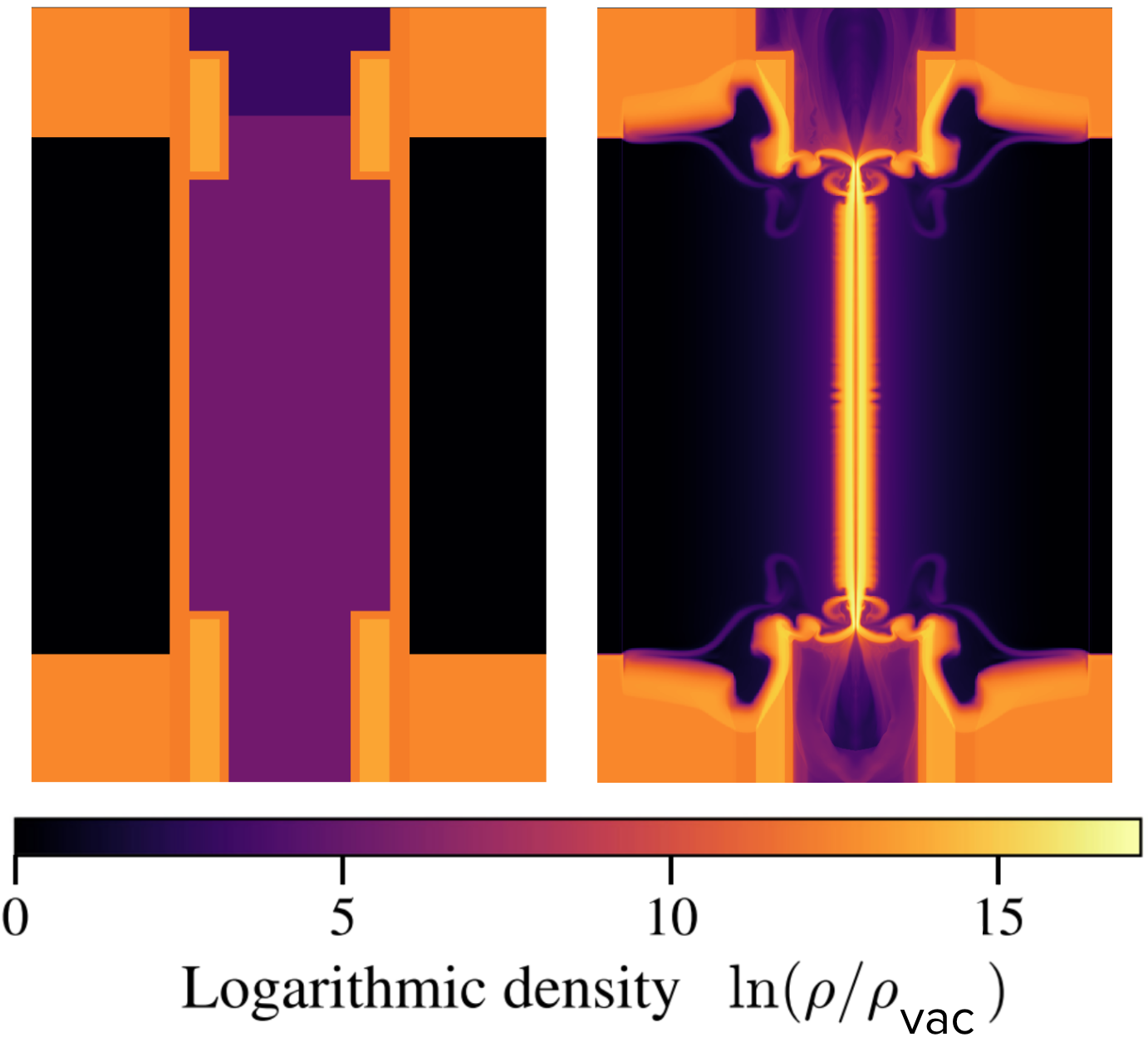
Ignition Computing is working with Pacific Fusion and partners to advance the MHD FLASH simulation code for fusion energy research. Pacific Fusion and collaborators including Ignition Computing recently published in Physics of Plasmas detailing the successful validation of FLASH’s physics. Complementing this validation effort, Ignition Computing is focused on enhancing the code’s speed and reliability, crucial elements for practical fusion design using FLASH.
Achieving commercial fusion energy depends significantly on advanced simulation tools. Startups like Pacific Fusion need trustworthy, high-fidelity codes to design fusion targets and accurately predict experimental results. FLASH, a publicly available multi-physics MHD code, has a history in astrophysics and high-energy-density physics research. Pacific Fusion launched a project to validate it for their specific Inertial Confinement Fusion (ICF) applications. Ignition Computing contributes to this goal by leveraging our computational expertise.
Our focus is on improving FLASH’s core functionality. We are tackling several key areas to ensure more stable and efficient simulations:
These core improvements to FLASH’s stability and speed are crucial for the progress of the wider validation project. A faster, more reliable FLASH enables the team to effectively run the necessary suite of physics benchmarks.
The validation phase compares the enhanced FLASH code against experimental results, theoretical models, and established ICF codes such as HYDRA and LASNEX. Across six challenging test scenarios, FLASH accurately models complex physics like hydrodynamic instabilities and integrated MagLIF performance. The results show strong alignment with experiments conducted on the Z-machine and with simulations scaled up to the 60 MA range, which is directly relevant to Pacific Fusion’s future goals.
By engaging Ignition Computing’s expertise in fusion simulation, we were able to significantly speed up the completion of this extensive validation effort. Few groups have the right knowledge to immediately contribute to a project like this, and Ignition was the type of low-friction, high-delivery partner we needed to make rapid progress” ~ Leland Ellison, Simulation and Modeling Lead at Pacific Fusion.
This ongoing collaboration showcases Ignition Computing’s focus: using our expertise in computational science to enhance simulation tools for demanding research areas such as fusion energy, making them more powerful, reliable, and efficient. We are happy to see that our collaboration with Pacific Fusion has helped FLASH’s successful validation, and we are looking forward to continue!
Read more at Pacific Fusion
The opinions expressed in this article are those of Ignition Computing only and do not represent Pacific Fusion’s official position.